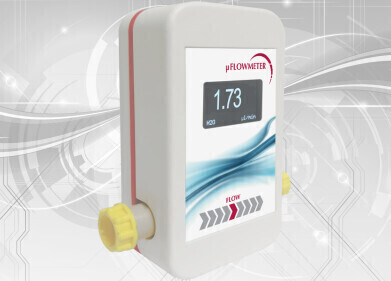LC-MS
Can Chromatography Authenticate Organic Food?
Sep 25 2017
Food fraud can affect us all. From horsemeat passed off as beef to orange juice that is not orange juice — wherever there is money to be made, someone will want to cheat to make more money. As organic produce sales increase it is likely that the fraudsters will move in. So how can the regulators ensure that people buying organic get organic produce?
Defeating the fraudsters
The European Commission’s Joint Research Centre (JRC) has joined the fight against fraudsters and given purchasers and users of organic produce a boost. They have just published a report based on a study of carrots over a four-year period using chromatography and the science of metabolomic fingerprinting. In a paper published in Food Chemistry — Metabolomics for organic food authentication: Results from a long-term field study in carrots — they report that the method shows potential for organic food authentication.
Metabolomics — large study of small molecules
Put simply, metabolomics is the study of metabolism — what reacts, where and what are the products of the reaction, what are the chemical processes are undertaken by metabolites. The focus is on cells though, and the specific metabolites that help cells to communicate and work. Metabolites are the end products of these chemical processes — the processes that take place in and on cells. The metabolome is a term sometimes used in conjunction with metabolomics — and the metabolome is simply the set of metabolites in a cell or tissue.
Metabolites are also sometimes known in biological terms as small molecules, low molecular weight compounds including sugars, lipids, amino acids and fatty acids. As might be expected, metabolites are found across the animal and plant kingdoms. It is thought that metabolomics could lead the way to personalized medicine and improved treatments. But the team from the EC looked to unlock the secrets of a carrot’s cell to see whether the carrot is organic or not.
Carrot science
The team collected samples of two varieties of carrots over a four-year period from the Walloon region of Belgium. They used high performance liquid chromatography with mass spectrometry (LC-MS) to analyse extracts from the carrots followed by statistical analysis. The use of LC-MS and GC-MS in food analysis is discussed in the article, LC-MS/MS and GC-MS/MS Multi Residue Pesticide Analysis in Fruit and Vegetable Extracts on a Single Tandem Quadrupole Mass Spectrometer.
The team report that ‘results obtained indicate that the production system has a systematic influence on the carrot’s metabolome’. With many different indicators, the team highlight carbohydrate metabolites as possible indicators: ‘Markers related to carbohydrate metabolism and plant defence mechanism were identified as responsible for the differences between both agricultural systems.’
The use of metabolomics in food authentication is in its infancy. But this study does show that it might be possible to identify organic food from non-organic food using chromatography. Whether organic is better — well that is a whole different topic.
Events
Apr 22 2025 Kintex, South Korea
Analytica Anacon India & IndiaLabExpo
Apr 23 2025 Mumbai, India
Apr 27 2025 Portland, OR, USA
May 11 2025 Vienna, Austria
May 18 2025 Tempe. AZ, USA












